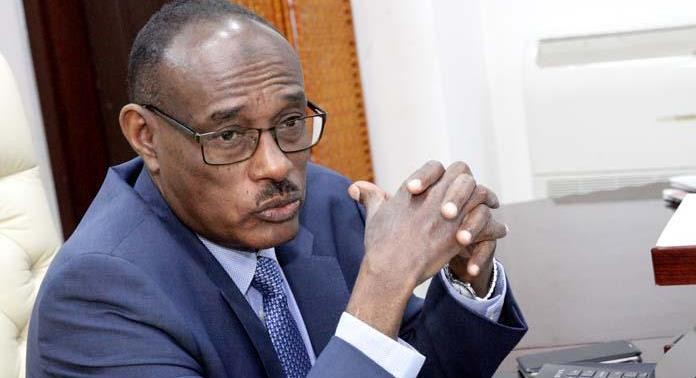The Sudanese ministry of foreign affairs says negotiations to streamline the peace agreement signed in Khartoum yesterday will continue in Khartoum, and will not be transferred to Kenya as earlier planned.
According to a press statement, Al-Dirdiri Mohamed Ahmed, the Sudanese minister of foreign affairs said the IGAD leaders had agreed to hold more sessions to sketch out details and timetables for implementation of the signed peace deal in the Sudanese capital. The schedule had earlier stated that the talks would move to Nairobi, Kenya after Khartoum.
“The Sudan mediation is now entrusted to lead the discussion for finalising the integration of the newly agreed parts in their different chapters of the agreement and finalise the revitalised ARCISS. The Sudan mediation will also lead the process of finalizing the modalities of implementation, rejuvenating different mechanism, and drawing required matrices,” the statement reads in part.
Mohammed also noted that the IGAD heads of state who attended the signing of the peace deal agreed that all parties will meet and discuss the agreement on outstanding issues of governance before it is included in the revitalised Agreement on the Resolution of Conflict in South Sudan (ARCISS).
The minister further called on the IGAD heads of state to allow for an extension of the negotiations for two more weeks, ending August 19th.
Kenyan President Uhuru Kenyatta while addressing the leaders after the parties initialled the peace deal yesterday, hailed Sudanese President Omar al Bashir, his team and the parties for their commitment, saying the impetus must be maintained.
“In the last four weeks president Bashir has hosted a critical and important phase in the South Sudan peace process. This has created a significant momentum that must not be lost and that is why Kenya and we have agreed with my brother Bashir that let us continue with these negotiations right here in Khartoum,” Kenyatta said.
He further reiterated Kenya’s support in the search for lasting peace and security in South Sudan saying, “South Sudanese leaders owe the IGAD region a debt of reciprocity to guarantee solidarity for our common destiny. It remains that no matter how much our region or the world invests in South Sudan, it is incumbent on the leaders and the people of South Sudan to find a lasting peace for South Sudan.”




